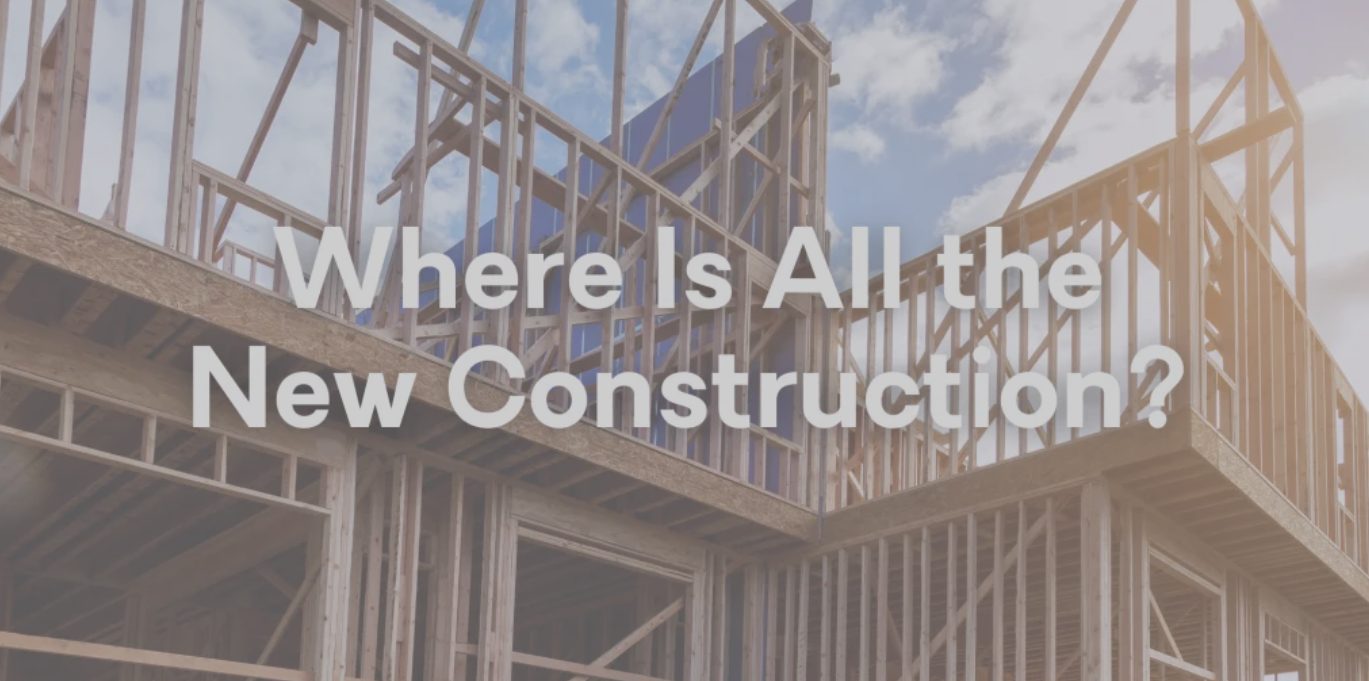As the population in the Seattle and Pacific Northwest area continues to grow, the demand for housing has surged. Yet, many prospective homebuyers are wondering: where is all the new construction? Despite a strong need for more homes, builders face several challenges that have slowed the pace of construction. In this article, we’ll explore how many new homes were built in surrounding counties in 2023, the hurdles developers are facing, and what this means for the future of housing in the region.
1. How Many New Homes Were Built in 2023?
Data shows that while new construction did occur in 2023, it didn’t keep pace with the increasing demand. Below is a snapshot of the number of new homes built in several key counties in the Seattle metropolitan area and the broader Pacific Northwest.
- King County: The largest county in the Seattle area saw approximately 7,500 new housing units completed in 2023, a slight increase from 2022. However, this is still well below the target needed to address the area’s housing shortage.
- Snohomish County: Around 3,200 new homes were constructed in Snohomish County in 2023, continuing its steady growth as a popular suburban region for those commuting to Seattle.
- Pierce County: In Pierce County, 2,900 new homes were built, a modest increase from 2022, reflecting continued development in suburban areas like Tacoma and Puyallup.
- Kitsap County: On the west side of Puget Sound, 1,100 new homes were completed in 2023. Kitsap remains a smaller but growing market for those seeking more affordable options outside of Seattle.
- Thurston County: Thurston County saw 850 new homes constructed, continuing to attract buyers seeking a quieter, more rural lifestyle while remaining within commuting distance to Olympia or Seattle.
- Clark County (Vancouver area): Vancouver, WA, and its surrounding areas, had approximately 1,500 new homes completed, driven in part by the influx of people moving from Portland and Seattle.
Overall, while over 17,000 new homes were built across the major counties surrounding Seattle, this still falls short of meeting the projected housing demand, which is estimated to require closer to 25,000 new units annually in the greater Seattle area alone.
2. Challenges Builders Are Facing
Despite the strong demand for housing, several factors have made it difficult for builders to keep up with the pace of construction. These challenges include:
a. Rising Construction Costs
One of the biggest hurdles builders face is the rising cost of materials and labor. The price of key materials such as lumber, steel, and concrete has fluctuated significantly in recent years. Labor shortages in the construction industry, exacerbated by the pandemic and an aging workforce, have also driven up wages, making it more expensive to build new homes. In fact, the National Association of Home Builders (NAHB) reported that in 2023, the cost of building a new home had risen by nearly 20% compared to pre-pandemic levels.
b. Limited Availability of Land
In highly urbanized areas like Seattle, one of the most significant challenges is the limited availability of buildable land. Zoning restrictions and land use regulations in many cities have made it difficult to find suitable plots for large-scale development. Even in suburban and rural areas, builders often face challenges in acquiring land due to lengthy permitting processes and competing interests for agricultural or conservation use.
c. Lengthy Permit and Approval Processes
Regulatory barriers also play a key role in slowing down new construction. In the Seattle area, it can take years to secure the necessary permits and approvals for new developments. Environmental impact studies, local government approvals, and community opposition can all delay projects. This has led to a backlog of developments waiting to break ground.
d. Infrastructure and Utilities
As new communities are developed in suburban and rural areas, builders must also contend with the cost and logistics of expanding infrastructure such as roads, water systems, and electrical grids. In some cases, local governments may require developers to contribute to the cost of new infrastructure, further adding to the expense of building homes. Additionally, ensuring that new developments have access to broadband internet—a necessity for modern life—can also be a challenge, particularly in rural areas.
e. Skilled Labor Shortage
The construction industry has been grappling with a skilled labor shortage for several years, a problem that worsened during the pandemic. Many experienced workers have retired, and there hasn’t been enough new talent entering the industry to replace them. According to the Washington State Department of Labor & Industries, there were over 6,000 unfilled construction jobs in the state as of mid-2023. This shortage of labor has slowed down projects and contributed to delays in completing new housing developments.
3. The Impact on Homebuyers
The challenges facing new construction in the Pacific Northwest have a direct impact on homebuyers. With fewer new homes available, prices for existing homes continue to rise as demand outpaces supply. In 2023, the median home price in the Seattle metropolitan area rose by nearly 10%, largely driven by the lack of new inventory.
For buyers seeking newly constructed homes, the options are limited, and competition can be fierce. Many builders have long waiting lists, and some have even started offering homes through a lottery system. Additionally, the rising cost of construction has made new homes more expensive, pricing some buyers out of the market altogether.
4. Looking to the Future
While 2023 has presented significant challenges for homebuilders, there is hope on the horizon. Local governments in the Seattle area and surrounding counties are working to address some of these issues by revisiting zoning laws, streamlining the permitting process, and investing in infrastructure.
There has also been a push toward more innovative building techniques that could help speed up the construction process and reduce costs. Modular homes, for example, are becoming increasingly popular as a way to build homes more efficiently. Prefabricated components can be constructed off-site and assembled quickly, reducing labor costs and construction time.
Additionally, with ongoing conversations about improving access to vocational training and encouraging more young people to enter the trades, the labor shortage could eventually ease, allowing builders to take on more projects.
Conclusion
New construction in the Seattle and Pacific Northwest area is happening, but it’s not keeping pace with the growing demand. Builders are facing a host of challenges, from rising material costs to a shortage of skilled labor and regulatory hurdles. For homebuyers, this means fewer options and higher prices. However, with changes in zoning, more efficient building practices, and future infrastructure investments, there’s hope that the pace of new home construction will pick up in the coming years.
If you’re considering buying a newly built home, it’s important to be prepared for a competitive market and to stay informed about new developments in your desired area. Working with a knowledgeable real estate agent can help you navigate the process and find the best options available.


 Facebook
Facebook
 X
X
 Pinterest
Pinterest
 Copy Link
Copy Link



















